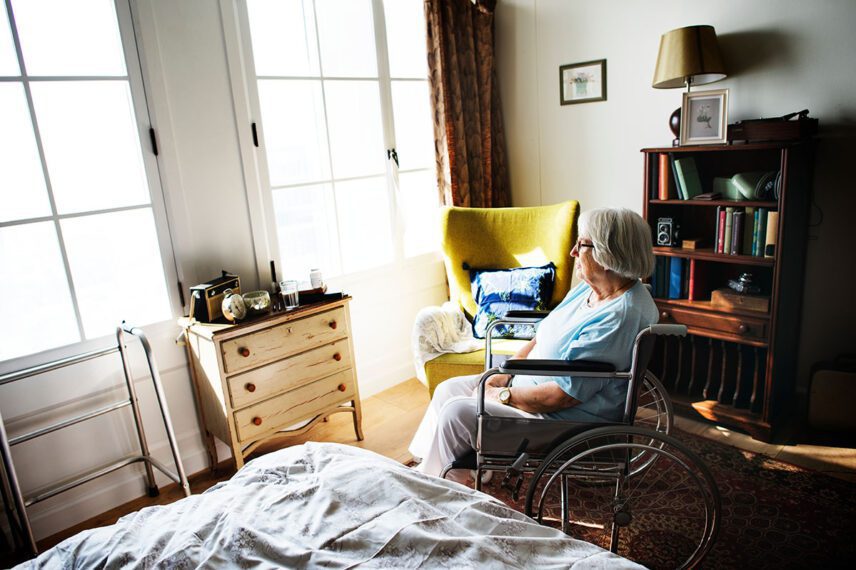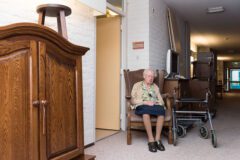What Should I Do if I Suspect Nursing Home Abuse?

Deciding to place a loved one in a nursing home facility is never easy. But whenever you do make that decision, you expect your loved one to receive the same level of care you would give them yourself if you could. And while most nursing homes can meet or exceed your expectations, it’s important to be prepared for the possibility that they may not. If you suspect your loved one is experiencing nursing home abuse, it is critical to take immediate action.
Below is a list of actions you can take to protect your loved one in case of suspected abuse.
Steps to Take Against Nursing Home Abuse
Taking immediate action against suspected abuse is one of the most crucial steps you can take. Hesitation or failure to remove your loved one from the facility can result in further abuse or worsening of injuries if your loved one is left in the hands of their abuser. Your first steps should include:
- Calling 911 in the event of an emergency
- Speaking with the management of the nursing home
- Collecting evidence and documenting any proof of abuse
- Contacting a nursing home ombudsman
- Removing your loved one from the nursing home
- Contacting a nursing home abuse lawyer
Since nursing home patients are often frail and defenseless, swift and deliberate intervention is necessary in most cases of abuse. Let’s go over the above steps in further detail.
Call 911
If there is a clear pattern of abuse or if your loved one is in imminent danger, contact the police immediately. They will likely have you fill out a report documenting the abuse and will intervene to ensure the safety of the nursing home residents, if necessary.
Question the Staff About Suspected Abuse
It’s important to eliminate the possibility of a misunderstanding, as what may be perceived as abuse may have a reasonable explanation. Asking questions rationally and calmly to nursing home staff and management can resolve the issue before further action is needed (like firing the abuser). Regardless, the staff should be cooperative and willing to look into any claims of abuse or neglect and offer immediate solutions to the problem. If not, it’s time to remove your loved one from the facility and find a new nursing home.
Collect Evidence of the Abuse
Take notes of any conversations you have with the staff. Document anything unusual about the facility, including taking photographs or videos of signs of hazardous conditions, neglect, or abuse. Jot down the names and numbers of anyone you speak to, including witnesses to the abuse. Log any medical bills and medical treatments your loved one received because of the abuse. The more information and proof you have, the better.
Contact the Nursing Home Ombudsman and the National Center on Elder Abuse
Every nursing home is required to post the phone number of their local Ombudsman, a person tasked with looking into any claims of neglect or abuse to ensure they are investigated thoroughly. This person should be your first contact for reporting the abuse. Additionally, if you have specific questions about whom else to contact, the National Center on Elder Abuse hotline can guide you to the correct resources at 1-800-677-1116.
Speak with Your Loved One and Remove Them From the Facility if Necessary
Speaking with your loved one in private and away from the hospital staff is crucial to understanding the gravity of their situation. If, for any reason, the nursing home staff will not allow you to speak with your loved one in private, take it as a major warning sign that something is amiss. Talking to them in private also ensures your loved one is free from the fear of potential retaliation and can reassure them that you are concerned about their wellbeing. Furthermore, it allows you to assess if your loved one would be safer moving to a different facility.
Contact a Nursing Home Abuse Attorney
Consulting with a lawyer ensures that you are taking active steps to protect your loved one and other residents in the facility. It also signifies that you are serious about taking action against your loved one’s abuser and intend to stop future abuses. A lawyer can take punitive action against the abuser and help you to file a claim for any compensation you may be rightfully owed.
Conclusion
If your loved one has been harmed as a result of nursing home abuse, there are several actions you can take to ensure that they and other residents are protected against future abuse. By contacting the proper authorities, speaking with your loved one, collecting all evidence of the abuse, consulting with an attorney, and communicating with the nursing home administration, you are taking the necessary actions to defend your loved one.






